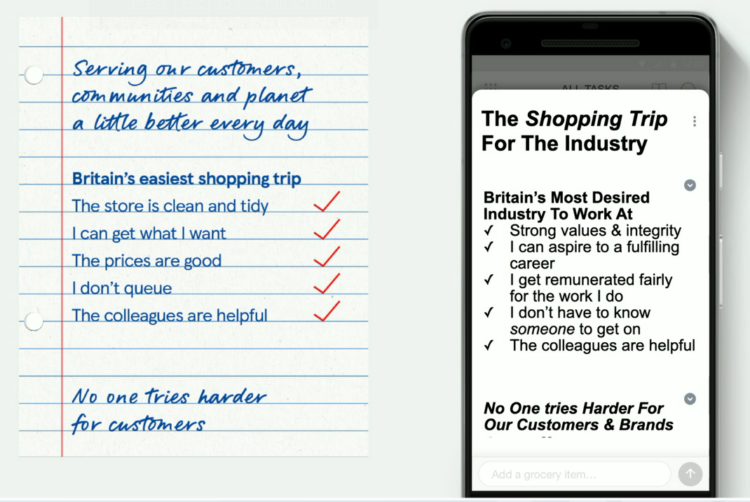One meeting away from meltdown

Media Leaders
Working parents are burned out and on the brink. Here’s how you can support them.
“There are lots of exceptions to this and this will annoy many. But I think generally speaking the people who are MOST reluctant to come back to the office for 3-4 days per week are probably the people you are OK without.”
This recent Tweet from a high profile co-founder and strategist is reflective of the bias and reductive thinking which risks holding back our once in a generation opportunity to reshape the workplace for the better.
Missing amongst the flurry of headlines from office owners and landlords predicting ‘full occupancy’ and thought leadership articles about the importance of office banter are the experiences, challenges and barriers facing working parents.
For the truth is, however much we want this pandemic to be over, many working parents are on the brink. Or, as writer Emily McCombs succinctly declared: “Every parent I know wants to walk into the sea right now.’

I write this with the support (and constant interruption) of a much-loved, yet unexpected, co-worker under my desk; my six-year-old (currently sponsored by Netflix).
Emily is one of the hundreds and thousands of children across the UK currently isolating at home with Covid. It was a year ago I urged working parents not to give up. Twelve months later, my Groundhog Day experience is not unique, yet remains invisible in large parts of the media.
With a childcare sector on the brink of collapse and school’s struggling to stay open, once again the pandemic is disproportionately impacting working mothers.
All In Census data found that 10 times more women than men believed parental leave negatively impacted their career progression (53% of women versus 5% of men). While women were six times more likely to be personally discriminated against because of their gender.
As an industry, we might talk about a talent crisis, but we have to ask ourselves: do we really want to change?
I, for one, am not okay with an office, or an industry, that is robbed of the marketing firepower of working mothers. Or the unique perspectives and lived experiences of disabled and diverse creatives.
The industry is crying out for the mentorship, innovation and honest perspective of older women. So we need to be asking: “who is not in the room?” (whether virtual or ‘IRL’) for all the right reasons – not as a casual judgement of perceived commitment.
We all have a responsibility to grasp this once-in-a-generation opportunity to reshape the workplace for the better.
So working parents, once more I urge you to keep going.
I share these tips with the implicit understanding that everyone’s situation is different, but we all share an opportunity to raise the bar.
1. Be #FlexibleFirst
The pandemic has shown that many of the assumptions we had about remote and flexible working were entirely imagined. Yet we need to be intentional about being #FlexibleFirst.
Yesterday, All In urged the industry to improve the experience of representation of women in our industry by taking the flexible first checklist. Share it, save it and work towards it; be intentional in raising the bar.
2. Deeds not words
If you can’t control your time you can’t control your career.
As an industry we spend women’s time like water. When you layer in the additional emotional and practical burdens of the pandemic with the fact that female leaders are more likely than men to spend time on DEI work outside of their formal job responsibilities, it’s clear we have an industry-wide problem.
If companies truly value this work they need to ensure it is not treated as an unpaid side-hustle.
3. Don’t let cynicism creep in
Cynicism is the death knell for creativity and it will crush your career.
Joy, connection, making work that matters, with people who matter to you, has always been the linchpin of the media industry.
The past two years have delivered unfathomable levels of grief, anxiety and uncertainty; so it is on all of us to be intentional about pushing for better and rejecting cynicism.
4. Know your value
‘The great resignation’ wasn’t just a killer headline; it’s a statement of reality.
At this unique reset moment, individuals are choosing change in all aspects of their lives and this drive for change needs to extend to how we retain maternal talent.
Brands need working mothers more than ever. In the UK, they account for over 70% of all household spending across all category types, representing £205bn of the UK’s total economy.
5. Be a champion
Research from McKinsey shows that women are now significantly burned out – and increasingly more so than men.
Research from All In shows that 15% of women are likely to leave the industry because of lack of inclusion or discrimination experienced. Yet despite the negative impact of stress and exhaustion, women are still doing more to support their teams and advance diversity, equity and inclusion efforts.
So, instead of taking up a rigid position in the reductionist, hyperbolic and overtly masculine ‘war for talent’, why not instead fight to promote, pay and support the working mothers in our industry?
Looking back over the past two years I find myself in awe of what working mothers have achieved.
So, my message to working mothers is simple: the status quo is not okay, but keep looking up, I see you and will keep cheering for you every step of the way.
Nicola Kemp is editorial director of Creativebrief
Media Leaders: Mediatel News’ weekly bulletin with thought leadership and analysis by the industry’s best writers and analysts.
Sign up for free to ensure you stay up to date every Wednesday.




